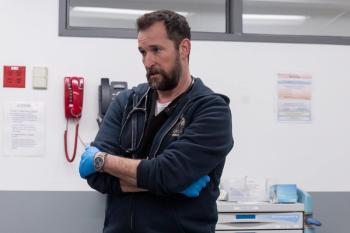
Finding mHealth Apps that Doctors Can Trust
Now that mHealth apps are flooding the market, clinicians and health systems must understand their benefits and detriments.
Can mHealth apps change healthcare? Possibly, but physicians must be prepared.
It may be hard to imagine a time when prescribing a mobile health (mHealth) app for patients is as common as writing a script for an antibiotic or statin, but if the quality of mHealth apps continues to improve, that future might not be too far away.
But for now, many physicians and nurses have serious doubts about the trustworthiness of mHealth apps. They question whether the apps are scientifically accurate, whether they are more effective than printed patient education materials and whether patients will use mHealth apps once the novelty wears off. On the other hand, clinicians are more willing to use medical apps that directly meet their professional needs, such as digital drug reference guides and clinical decision support systems.
>>
Physicians and patients seem to view mHealth apps quite differently. One survey
Why the disparity? Might it be a function of doctors’ training or exposure to medical literature? A case in point is the Owlet Smart Sock, which new parents can put on a newborn to help monitor a child’s heart rate and oxygen saturation. The device sends readings to an mHealth app that lets parents track the child’s vital signs. Most pediatricians are quick to point at that this type of monitoring is completely unnecessary for a healthy infant. And the American Academy of Pediatrics’ policy statement on tracking this type of data for a healthy infant
But the reluctance of health professionals to recommend mHealth apps is also prompted by their skepticism about the effects of mHealth apps on outcomes and their concerns that the apps may be unsafe or inconsistent with evidence-based clinical guidelines. Such skepticism has
Evaluating Patient-Facing mHealth Apps
A review of mobile apps that addresses the needs of patients with clinical depression, for instance,
>>
The IQVIA Institute for Human Data Science, a research organization that serves the healthcare IT industry, has also
Of course, efficacy should not be the only metric used when considering an mHealth app. A recent study from JMIR Mhealth Uhealth also
When choosing an mHealth app to recommend to patients, clinicians need to be assured that it is not only effective and easy to use but safe. That is not always the case. For example, if an app is designed to collect blood glucose levels, does it alert the patient if the readings are dangerously low or high? Similarly, if the app is connected to a wireless blood pressure cuff, will it tell users to see their provider when it registers very high or low readings? Karandeep Singh, M.D., of the University of Michigan Medical School, and his associates analyzed 121 mHealth apps that let patients record health-related data,
Of equal concern was that in many disease categories, an mHealth app’s reactions to indications of a health danger were inadequate. For instance, researchers found that the percentage of danger alerts considered appropriate fell below 50 percent for apps used to manage cancer, dementia, hypertension, coronary heart disease, congestive heart failure, liver disease, chronic kidney disease and diabetes. Singh and his colleagues wrote, “While the app industry needs to do further work to meet basic safety and privacy standards, a subset of apps already conform to these standards. Policymakers need to consider how to encourage app developers to build apps that respond appropriately to dangerous information entered by users.”
Finally, as clinicians evaluate mHealth apps, they may want to consult respected professional organizations. For instance, the AMA has partnered with the American Heart Association and the Healthcare Information and Management Systems Society (HIMSS) to create an alliance — Xcertia — that sets guidelines to evaluate the quality, safety and effectiveness of mHealth apps.
>>
The American Psychiatric Association has also taken a position on mHealth apps that can help clinicians make more informed choices. Like the AMA and its partners, APA is not rating individual apps but offering providers guidelines to help them make their own decisions. The association
Enthusiasm for Doctor-Facing mHealth Apps
The list of mobile apps that physicians and nurses find useful in their professional lives is long and continues to grow. In a recent article
Similarly, Isabel Healthcare has gained favor among physicians who realize the need for computer-based diagnostic and treatment aids. It includes a patient-facing symptom checker and several tools to help clinicians interpret diagnostic clues. Isabel Pro DDX Generator uses natural language processing to access a database of disease presentations. The clinician inputs lab readings, vital signs, co-morbidities, age, gender and other parameters in free text or from an EHR system, and the company’s algorithms use the data to suggest possible diagnoses.
Is the FDA “Seal of Approval” Enough?
In recent years, the U.S. Food and Drug Administration (FDA) has taken a stand on mHealth apps, publishing regulations to guide developers as they design them and to help clinicians as they evaluate their worth. But these regulations don’t guarantee effectiveness or safety. The agency has made clear that it will not regulate all mHealth apps. Instead, it is
The FDA provides a
That more lenient approach to mHealth app regulation doesn’t mean these software platforms are free from problems and scrutiny. For example, in 2017, the New York Attorney General accused vendors of three mHealth apps of misleading consumers and not adequately protecting their data. Adidas’ Runtastic, MIT Media Lab spinoff Cardiio and Matis’ My Baby’s Beat claimed to monitor heartbeat using a smartphone camera or microphone and algorithms. But all three faced legal action,
About the Authors
Paul Cerrato has more than 30 years of experience working in healthcare as a clinician, educator, and medical editor. He has written extensively on clinical medicine, electronic health records, protected health information security, practice management, and clinical decision support. He has served as editor of Information Week Healthcare, executive editor of Contemporary OB/GYN, senior editor of RN Magazine, and contributing writer/editor for the Yale University School of Medicine, the American Academy of Pediatrics, Information Week, Medscape, Healthcare Finance News, IMedicalapps.com, and Medpage Today. HIMSS has listed Mr. Cerrato as one of the most influential columnists in healthcare IT.John Halamka, M.D., M.S., is the international healthcare innovation professor at Harvard Medical School, chief information officer of the Beth Israel Deaconess System, and a practicing emergency physician. He strives to improve healthcare quality, safety, and efficiency for patients, providers, and payers throughout the world using information technology. He has written 5 books, several hundred articles, and the popular Geekdoctor blog.
Get the best insights in healthcare analytics
Related





























































































